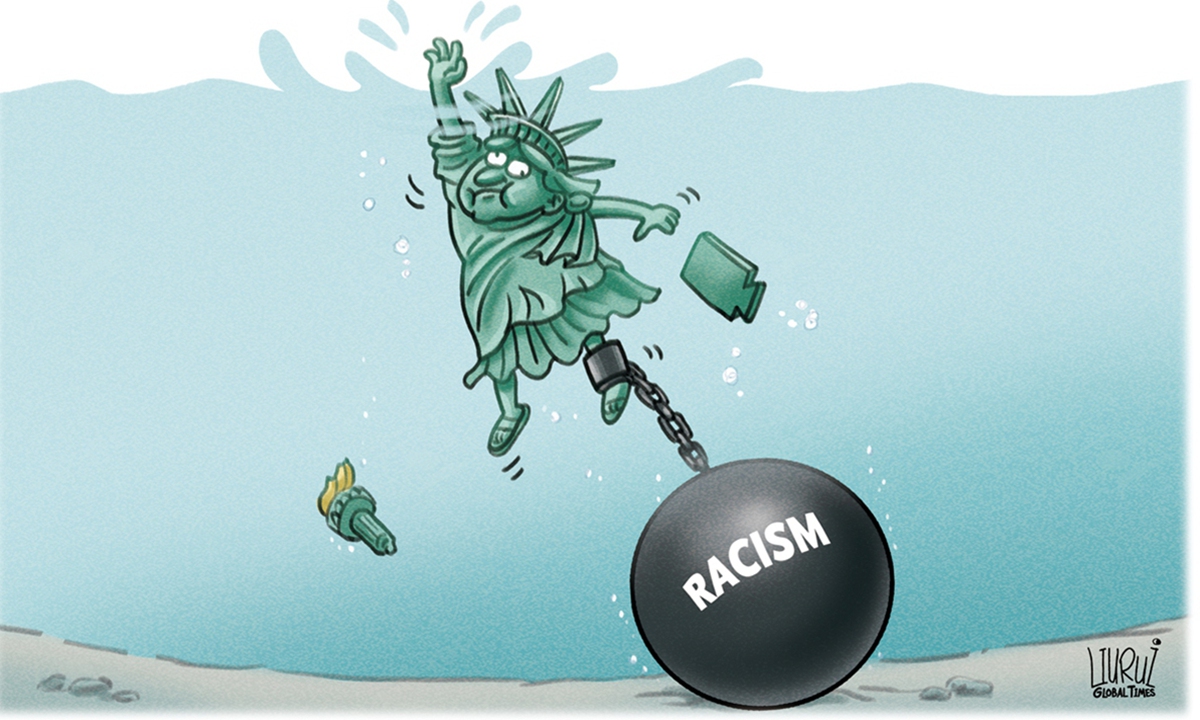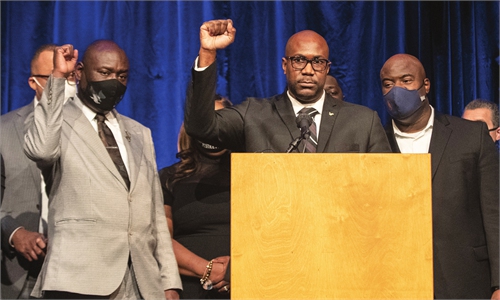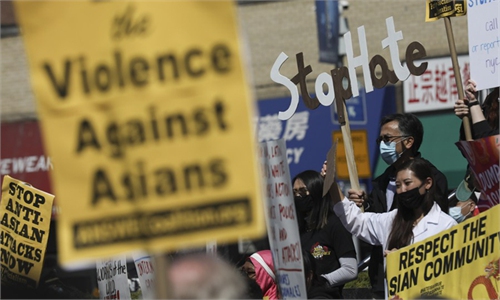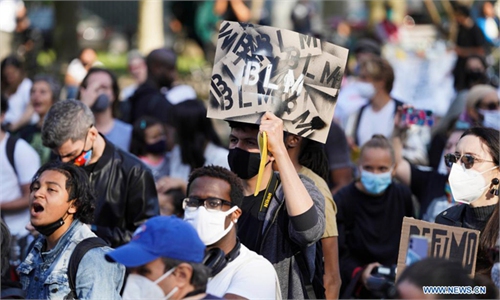
US racism Illustration: Liu Rui/GT
In a think tank symposium on Monday themed around this year's international situation and China's diplomacy, former Chinese ambassador to the US Cui Tiankai pointed out, "There is a strong element of racism in the US' China policy," which has led to the US' relentless and bottomless suppression, containment, differentiation and encirclement of China.This judgment on the nature of US behavior against China in recent years is based on the theoretical framework of "you are not one among us" and the "clash of civilizations." From a US perspective, its suppression of China is a realistic choice for maintaining its current hegemony. Besides, there is also an ideological factor, like its mentality - viewing itself as a savior in the religious sense. The US considers itself to be the one chosen by the God and believes that it has the obligation and responsibility to spread its ideas, ideology, values and social systems to others. This mind-set is linked to civilization, race and nationality. Therefore, the US suppression of China is bound to have an element of racial discrimination and prejudice.
The US would not directly admit the relationship between racism and its foreign policies, but instead, it embeds racism deeply into its competition with major powers.
David Lake, then president of the American Political Science Association, wrote in his article "White Man's IR: An Intellectual Confession" on the journal Perspectives on Politics in December 2016 that "White man's IR [international relations] begets white man's IR in the US."
That explains the US strategy toward China ever since Donald Trump took office. The US has tried to exclude Chinese technology, and wanted its allies to do the same. It has hyped the "debt trap" and China's "economic coercion," smeared China's handling of the COVID-19 epidemic, and denied China's system and governance. It is so paranoid that it treats Chinese scholars and students as spies. The newly established AUKUS, a trilateral security cooperation mechanism among the US, the UK and Australia, can be seen as a small Anglo-Saxon bloc targeting China.
Within the US, there have long been discussions about the role of racism in the US' China policy. In 2019, some US media reported that the US State Department's policy planning staff, led by then-director Kiron Skinner, was "preparing for a clash of civilizations" with China. Skinner described the great power competition with China as "a fight with a really different civilization and a different ideology." China, she noted, is the first great power competitor that the US has faced that is "not Caucasian."
This purely race-based argument triggered enormous debates in Washington's political circle at that time, because different fractions, such as conservatives and progressives, held different understandings and degrees of acceptance. The pro-establishment also worried that the race- or civilization-based theory would not help the US unite non-Western allies to contain China and could even weaken the US' global moral standing.
Race has played a major part in US diplomacy for years. Although it has been deliberately avoided in open discussions in the US, elements of racism in US diplomacy have a wide political foundation. The clash of different races or civilizations is actually the highest phase of the various clashes among humans, and it is irresolvable.
The element of racism in the US' China policy has already put China-US relations in jeopardy, and will become a hindrance to any improvement of future bilateral relations.
As the Marxist philosophy goes, the social being of men determines their consciousness, while social consciousness has an impact on their social being. Based on this, the US' domestic political reality determines its understanding of China, while this understanding has an impact on the US reality and the way it crafts its China policy. Racism is a constant in US politics as well as foreign policy. Within the US discourse on racism, China, Chinese Americans and Chinese are often linked to the "yellow peril," which strongly affects the US understanding of China, and this understanding has shaped the US' China policy. From a long-term perspective, it will be hard to see the US adjust its China policy and its ties with China.
The author is an associate research fellow with the National Institute of International Strategy at the Chinese Academy of Social Sciences. opinion@globaltimes.com.cn



